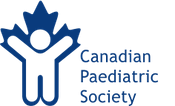A Kawasaki-like illness associated with COVID-19 in kids? What parents need to know
Recently, a hyperinflammatory illness has been reported in a small number of children worldwide. Children present with symptoms that resemble Kawasaki disease including prolonged fever, pink eyes, rashes, swollen hands and feet and abdominal pain. In very rare instances, child have presented with symptoms of shock, meaning that their blood pressure was very low.
Although a link to COVID-19 has not been established, researchers believe that this new syndrome, Pediatric Inflammatory Multisystem Syndrome (PIMS), may be a delayed immune response to the virus. Parents are understandably concerned, but should take comfort in knowing that this is incredibly rare – even in the regions hit hardest by COVID-19. When detected early, with appropriate clinical care, children typically recover and do well.
Our experts have answered some common questions.
What is Kawasaki disease and is it what we’re seeing now?
Kawasaki disease is a rare illness that causes inflammation in blood vessels throughout the body. It typically affects children under five years old, however this new hyperinflammatory illness (PIMS) tends to affect children who are slightly older.
Doctors believe that Kawasaki disease is an unusual immune response to an infection, so it is not surprising that similar cases may show up during an outbreak of a new virus like SARS CoV-2 (the novel coronavirus). Doctors in Canada, and around the world, are studying how COVID-19 impacts children, and how this new syndrome may behave differently from other inflammatory diseases in children that are known to follow viral infections.
What are the symptoms I should be looking out for in my child?
The earliest symptom of PIMS is usually a persistent fever that lasts at least 3 days. Children may also appear lethargic (low energy), have pink eyes, a rash, swollen hands and feet, or red, swollen and cracked lips. We are also hearing reports of children complaining of severe abdominal pain and diarrhea. Parents know their children best. If you are worried, please contact your family physician, paediatrician or visit your local hospital
How serious is it?
Without treatment, a hyperinflammatory immune response – like Kawasaki disease – can cause serious health problems, including in the heart.
Doctors know to look for these symptoms. Parents can be assured that treated early, most children will recover fully and begin to feel better within a few days of treatment.
What treatment is available if my child has PIMS?
Typical treatment for Kawasaki disease includes immune globulin (a substance made from human blood plasma containing immune antibodies) and aspirin. In some cases, steroids are given as well. Because aspirin can cause serious side effects in some children, it is very important that you do not treat your child with aspirin at home. Only give aspirin with guidance from a doctor.
When do the symptoms appear?
Symptoms can appear days to weeks following a viral infection.
My child has already recovered from COVID-19. Should I still be worried about this?
Because symptoms can appear weeks after recovery from a viral illness (like COVID-19), you should contact your health provider if your child shows any of the symptoms listed above. Parents should be reassured to know that this condition remains very rare. Only a very small number of children who have recovered from COVID-19 would develop this uncommon complication.
How will a diagnosis be made?
There is no single blood test for Kawasaki disease or for PIMS, so a diagnosis is made based on symptoms. Paediatricians are very familiar with inflammatory illness following a virus, and would quickly recognize the symptoms above and begin treatment after ruling out other conditions. They might order tests, such as blood tests, a nasal swab and echocardiogram (an ultrasound of the heart).
Are some children more susceptible (age, underlying conditions, etc.)?
We are still learning about this new syndrome and who is most likely to be affected.
Is this syndrome contagious?
At this time, doctors do not believe PIMS is contagious.
Is there anything I can do at home to prevent or treat this illness?
Do your best to avoid contracting any virus, including COVID-19. Wash your hands well and often, especially before eating or preparing food, cough and sneeze into your elbow, and stay home when you feel sick. If your child has any of the symptoms listed above – or if you are concerned about their health for any reason – contact your health care provider.
The global health care community is learning more about COVID-19 day by day, and this resource will be updated as more information becomes available.
Copyright
The Canadian Paediatric Society holds copyright on all information we publish on this blog. For complete details, read our Copyright Policy.
Disclaimer
The information on this blog should not be used as a substitute for medical care and advice. The views of blog writers do not necessarily represent the views of the Canadian Paediatric Society.
Last updated: Nov 25, 2020

